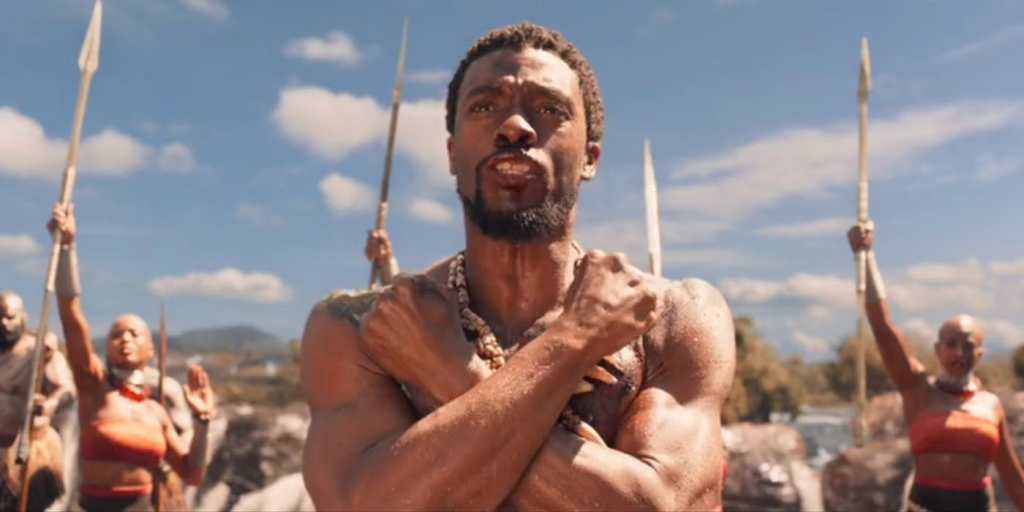By Christian Eltell
Written and Published on September 20, 2020
Critic Rating: 4/4 Stars
Special Film Review

“Wakanda Forever.”
A couple of years ago, these two words were chanted by audiences around the globe, especially people of color who were so excited and moved to see a black cast headline a major Marvel superhero motion picture. However, it’s so much more than a superhero film, it’s a story about family and redemption, as well as leadership, and understanding what it means to share your resources and technology with the rest of the world, including allies, poverty-stricken communities, and those desperately in need.
This film is very reminiscent of The Lion King, in which the son deliberates over whether or not he is fit to be king, and how to succeed his father after his untimely death. There’s also the tragic villain: the family member who feels betrayed and excluded from getting his opportunity to seize the throne, so he develops an evil scheme to take down everyone. The idea that a kingdom like Wakanda, an isolated country in Africa, can be both beautiful and technologically resourceful, and also provide unity, is such a sight to behold, and one that so many of us would hope for in the present and near future.
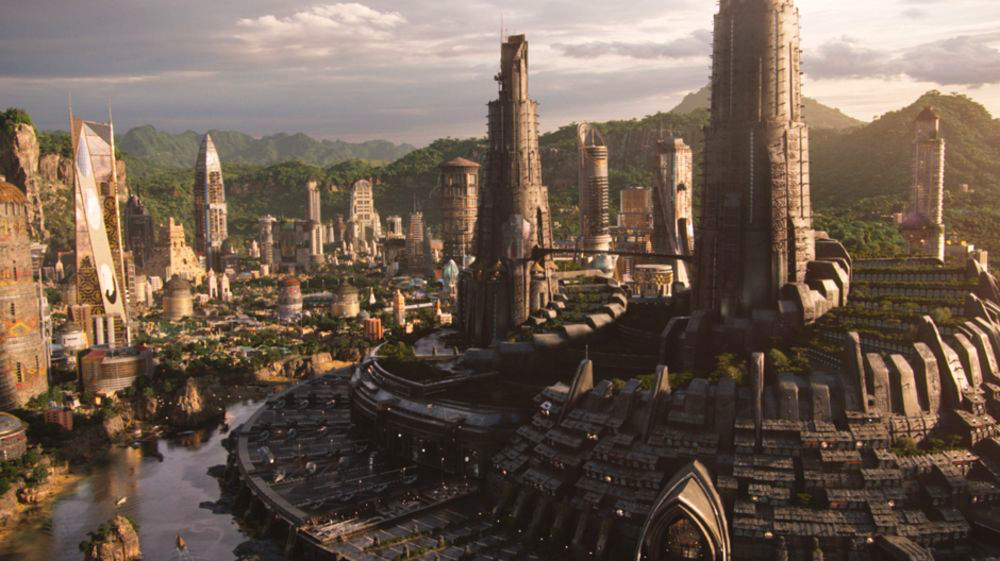
The late Chadwick Boseman, a talented actor who embodied iconic figures Jackie Robinson, James Brown, and Thurgood Marshall, portrays T’Challa (the Black Panther, king of Wakanda) in a performance of power, patience, and authority. He presents a hero of color who deeply understands what it means to be a leader, while contemplating with the dilemma of sharing his kingdom’s advanced technology and resources with other areas around the globe. He is also a son who loves his late father, T’Chaka, very much, but also condemns his dad’s unfortunate mistake from the past, which was killing his own brother and keeping his death a secret, as well as leaving behind his brother’s young son, who grows up to seek retribution and control of Wakanda.
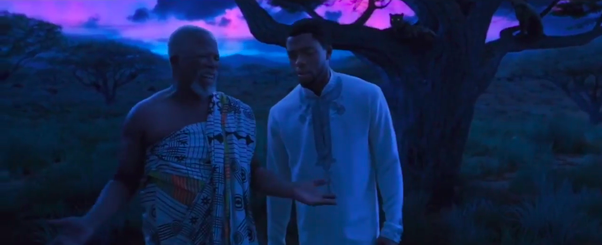
As Killmonger, Michael B. Jordan, who was brilliant in Ryan Coogler’s Creed, portrays a scorned villain who was abandoned by his uncle and was never given the proper guidance. Due to this, he is angry and on a mission to rule Wakanda in tyranny in order to start massive world war revolutions. He is devastated that countries around the world, especially communities of color, have been dealing with poverty and discrimination for too long. However, Killmonger’s approach to solving these issues is radical, forceful, and dangerous, especially when planning to send Wakanda’s vibranium (the world’s strongest medal) and technology to the wrong hands.

The women are also equally powerful. Lupita Nyong’o and Danai Gurira, as Nakia and Okoye respectively, are both strong warriors who are always devoted to protecting Wakanda. While Nakia loves Wakanda, as well as her previous intimate relationship with T’Challa, she prefers working undercover outside the kingdom in order to help aid those in need in other countries. Okoye is strict in following the policies of Wakanda, and is a helluva fighter with a spear. She believes there have to be careful limitations in how Wakanda interacts with other areas, especially when it comes to sharing their tech, and questions the credibility of outsiders, such as CIA Agent Everett Ross (Martin Freeman, giving us a little more of the CIA role he briefly played in Captain America: Civil War) and Killmonger. Angela Bassett, as T’Challa’s mother, Queen Ramonda, is wise and noble, believing her son will become a great king.
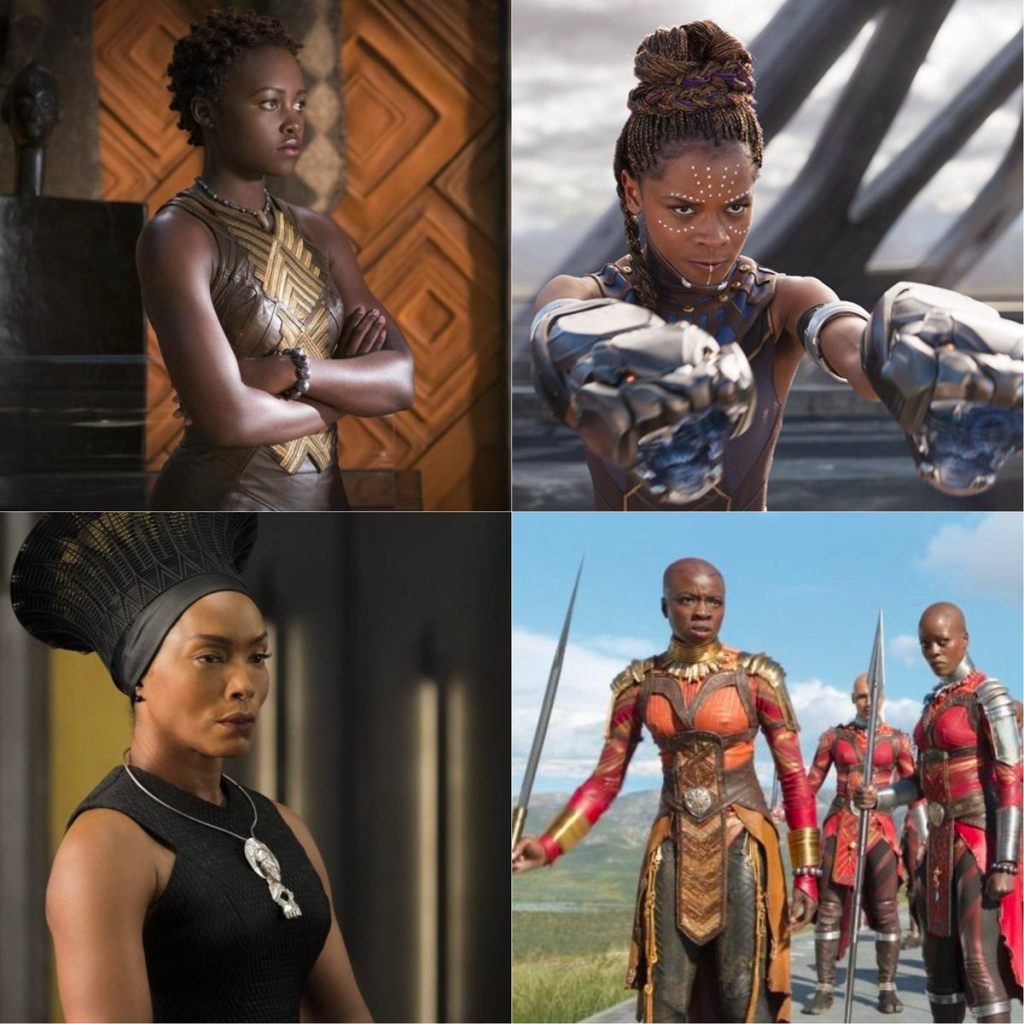
However, Princess Shuri, T’Challa’s sister, almost steals the film with her humor and her cool gadgets, like Q from the Bond pictures. Some of the best moments in the film are when Shuri assists T’Challa, including a chase scene in which she rides a virtual car in order to help her brother go after Ulysses Klaue (the hilariously evil Andy Serkis, adding on to his portrayal from Avengers: Age of Ultron), and his men. Suri also uses vibranium to heal Agent Ross’s gunshot wound to the back, and has the metal set up in T’Challa’s Black Panther suit, whIch can absorb kinetic energy. Her transit system in Wakanda is also state of the art with vibranium.



Forest Whitaker also has a supporting role as Zuri, the man in charge of the rituals, including those by combat, in Wakanda, and plants the beautiful purple herbs that help the king of Wakanda obtain the powers of the Black Panther. Zuri, like T’Chaka, sadly hid the truth about Killmonger’s existence. Zuri worked undercover to retrieve vibranium that Killmonger’s dad, Prince N’Jobu (well played by Sterling K. Brown) stole in order to help other people of color and families with African roots in his community in California. N’Jobu wanted to give his fellow ancestors the weapons and resources to be free from their oppressors.


Daniel Kaluuya (terrific in Get Out) plays W’Kabi, T’Challa’s friend and comrade, who later turns on him by joining Killmonger because he also believes in radical revolutions and waging wars against enemies, which also complicates his relationship with Okoye. Winston Duke’s M’Baku is another tough but comical character who is initially T’Challa’s challenger for the throne of Wakanda, but then becomes a crucial ally.


Aside from the cast, the cinematography in this picture is beautiful, from the waterfalls in which ritual combat takes place, to all the trees and green landscapes, as well as M’Baku’s snowy mountainous terrain. The costumes and wardrobe are elegant and colorful, as well as the cool hi-tech Black Panther outfits. There are also huge rhinos with W’Kabi’s army, and Shuri’s technological lab/command center is a marvel. The hand-to-hand fights and action sequences, including the ritual combats, and a long take in which T’Challa, Nakia, and Okoye are fighting Klaue and his henchmen in a casino, are also entertaining to watch. The final battles in Wakanda, including T’Challa and Killmonger’s final fight, are riveting and perfect for the film’s conclusion. There is also a mid-credits scene (one of the best ones in the MCU) in which T’Challa delivers a moving speech in the U.N, stating that Wakanda would no longer hide in the shadows, and that he is allowing Wakanda’s technology and resources to be shared with other countries and allies. The film’s score by Ludwig Goransson nicely captures the African elements, especially the use of drums, the horns which symbolize royalty in the main theme track for T’Challa’s character, and high-pitched African vocals during emotional scenes. The film’s soundtrack by Kendrick Lamar is also complementary to the film’s high energy due to the combination of hip-hop and African themes.
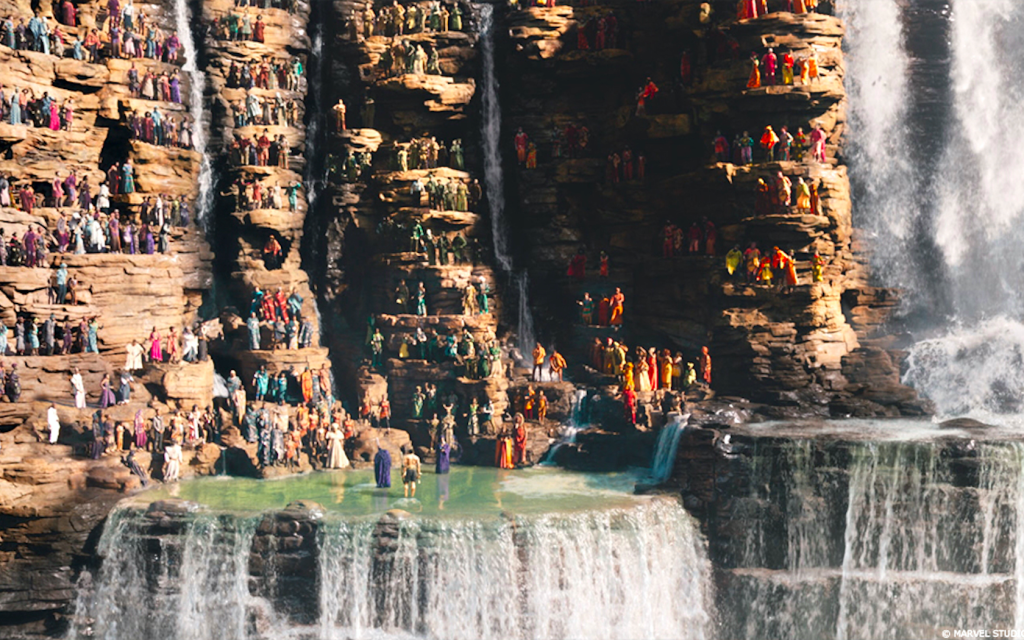

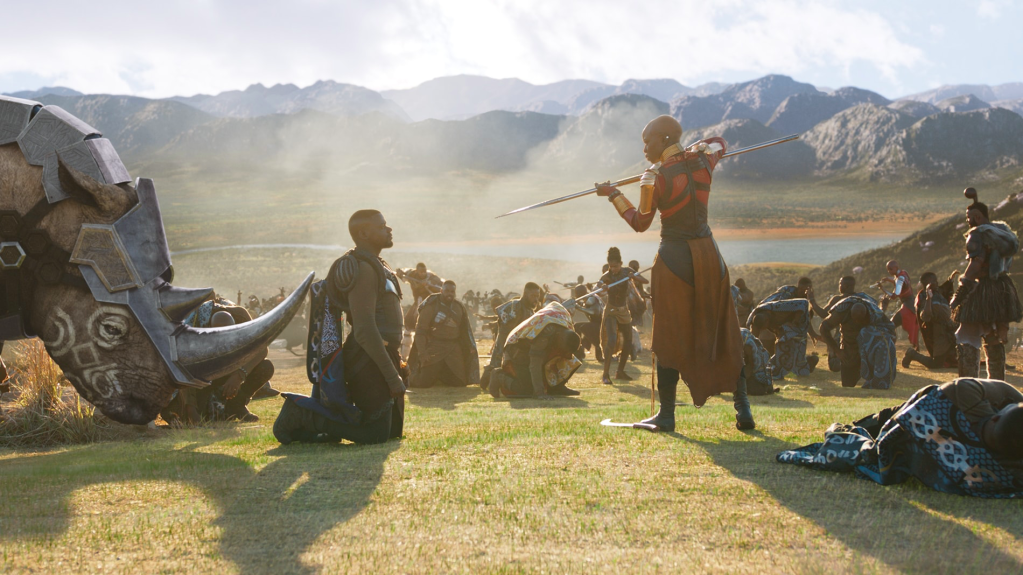

Ryan Coogler’s Black Panther is not only one of the best superhero films in the MCU, but it’s also an intelligent picture that embraces diversity and inclusion. T’Challa/Black Panther is a role I envisioned Chadwick Boseman playing numerous times, like Robert Downey Jr. with Iron Man/Tony Stark and Hugh Jackman with Wolverine/Logan, and it breaks my heart that he has now passed. Learning that he took on large roles in films, including Black Panther, while privately battling colon cancer, proved that he truly was a superhero in real life as well, and that he inspired so many fans around the world, especially people of color.
Rest In Peace Chadwick Boseman. Long live the King. Wakanda Forever.
